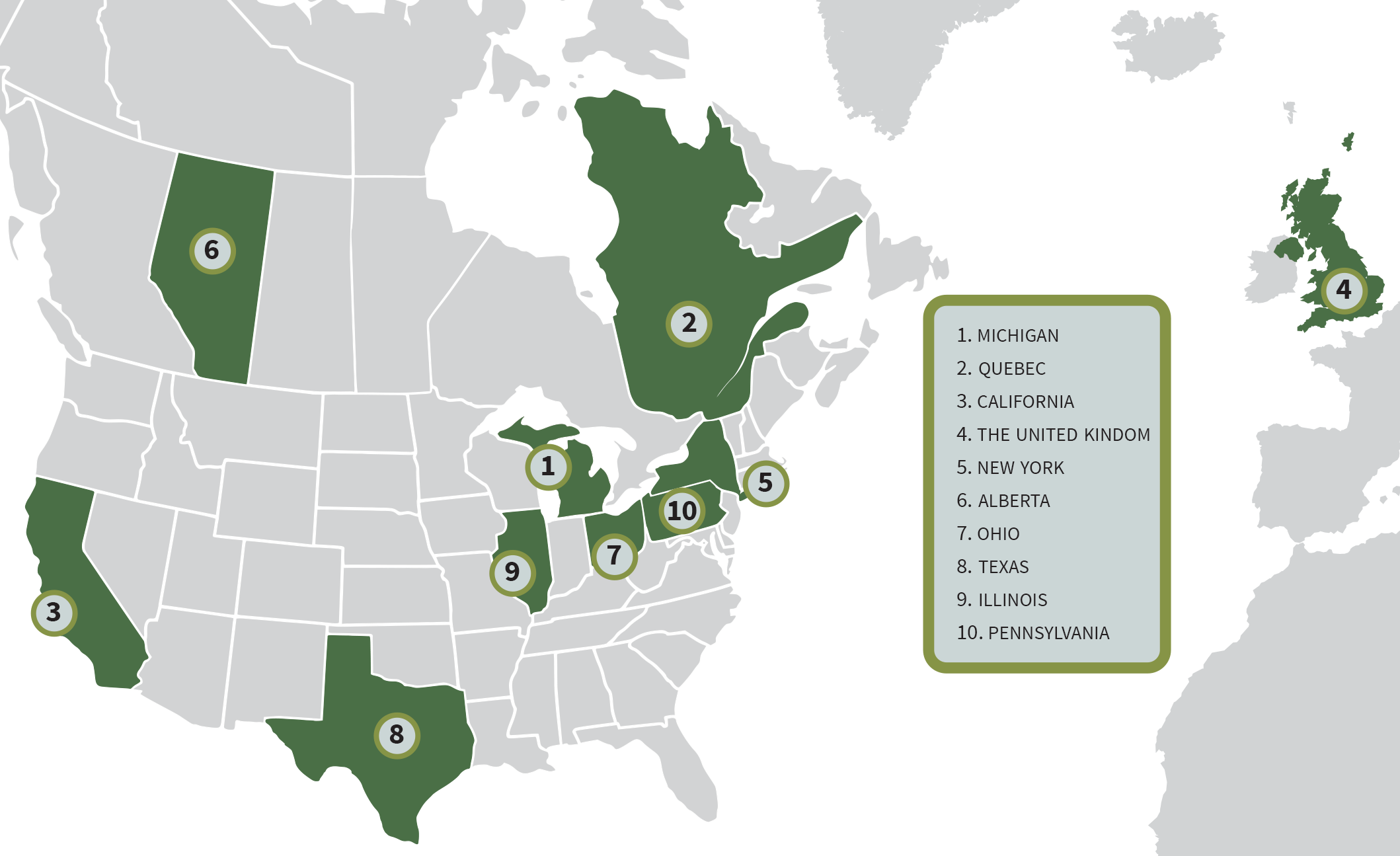April 30, 2015
On March 25th, the Mowat Centre hosted “Policy in a Pub” for the second time.
 I am here today to advocate that the Federal government take a more active role in opening up export markets to Ontario’s producers. Ontario, particularly Southwestern Ontario, has always been and always will be a region focused on international trade as our size does not give us the economies of scale needed to cost-effectively produce goods or services only for the domestic market.
I am here today to advocate that the Federal government take a more active role in opening up export markets to Ontario’s producers. Ontario, particularly Southwestern Ontario, has always been and always will be a region focused on international trade as our size does not give us the economies of scale needed to cost-effectively produce goods or services only for the domestic market.
We hear a great deal from the Federal government about its trade agenda. And they are doing many good things. But, I’d like to make the controversial suggestion that the focus has been somewhat misplaced.
Consider, for a moment, the top 10 destinations for Ontario’s exports of goods. I’ll leave services out of this — the data on service exports is pretty spotty, which is a separate issue that needs to be addressed. The top 10 destinations for Ontario’s exports are:

Roughly tied for 17th on the list is China, Norway, Mexico and Tennessee. Yes, Ontario exports as much to Tennessee as we do to each of those three large economies.
On our top 10 list, there is one country, two provinces and seven US states. However, when we talk about trade at the federal level, we tend to focus either on reducing internal trade barriers or signing international trade agreements. We don’t spend a lot of time thinking about Ontario’s trading relationship with Texas or Pennsylvania. This is a big mistake.
For example, Canada’s free trade agreement with Korea has received a great deal of attention, and I don’t want to suggest for a moment the agreement is a bad thing. Free Trade is absolutely beneficial to Ontario’s economy. However, Ontario exports nearly as much to California in one week as we do to Korea in one year. Doubling exports to Korea has the same effect as increasing exports to California by 2%. Small percentage increases in exports to US states can have a dramatic impact on Ontario’s economy.
I am certain a number of you are thinking, “why do we need to examine each US state separately? Why not just focus on the US as a whole?”
While the US federal government is important and should not be ignored, we cannot forget state level governments, as they are involved in everything from procurement to infrastructure decisions. Important regulatory decisions that affect our producers get made at the state level, such as those made by the California Air Resources Board (CARB), which regulates consumer products that are made in Canada. Many of those CARB regulations are later used as the basis for US federal and even Canadian environmental regulation. What happens at the US state level matters.
Important regulatory decisions that affect our producers get made at the state level, such as those made by the California Air Resources Board.
There are a number of things the federal government can do to assist Ontario’s exporters. Here are just four:
First, we need to repair our relationship with our NAFTA partners, including Mexico. The visa issue we have with Mexico is an ongoing irritation that needs to be addressed. Supply chains are continent-wide and Canadian-based companies risk being excluded.
Second, Canada needs to make better use of regulatory harmonization through the Regulatory Cooperation Council. It took Canada nearly three years to come out with new chemical hazard communications rules after the release of the American Hazcom 2012, and the two sets of rules are still not harmonized in some key areas, and this is a barrier to trade.
Third, the federal government should enact a 50-state strategy to increase trade to the United States, recognizing that Ontario’s goods exports to individual states rivals that to individual countries. We export more to Rhode Island than we do to Sweden and our trade policy needs to reflect that reality.
Finally, we need to ensure we have the infrastructure necessary to get our goods, services, data, and our people to key markets. You can’t export what you can’t deliver.
We need to repair our relationship with our NAFTA partners, including Mexico.
More related to this topic
Author
Mike Moffatt
Release Date
April 30, 2015






